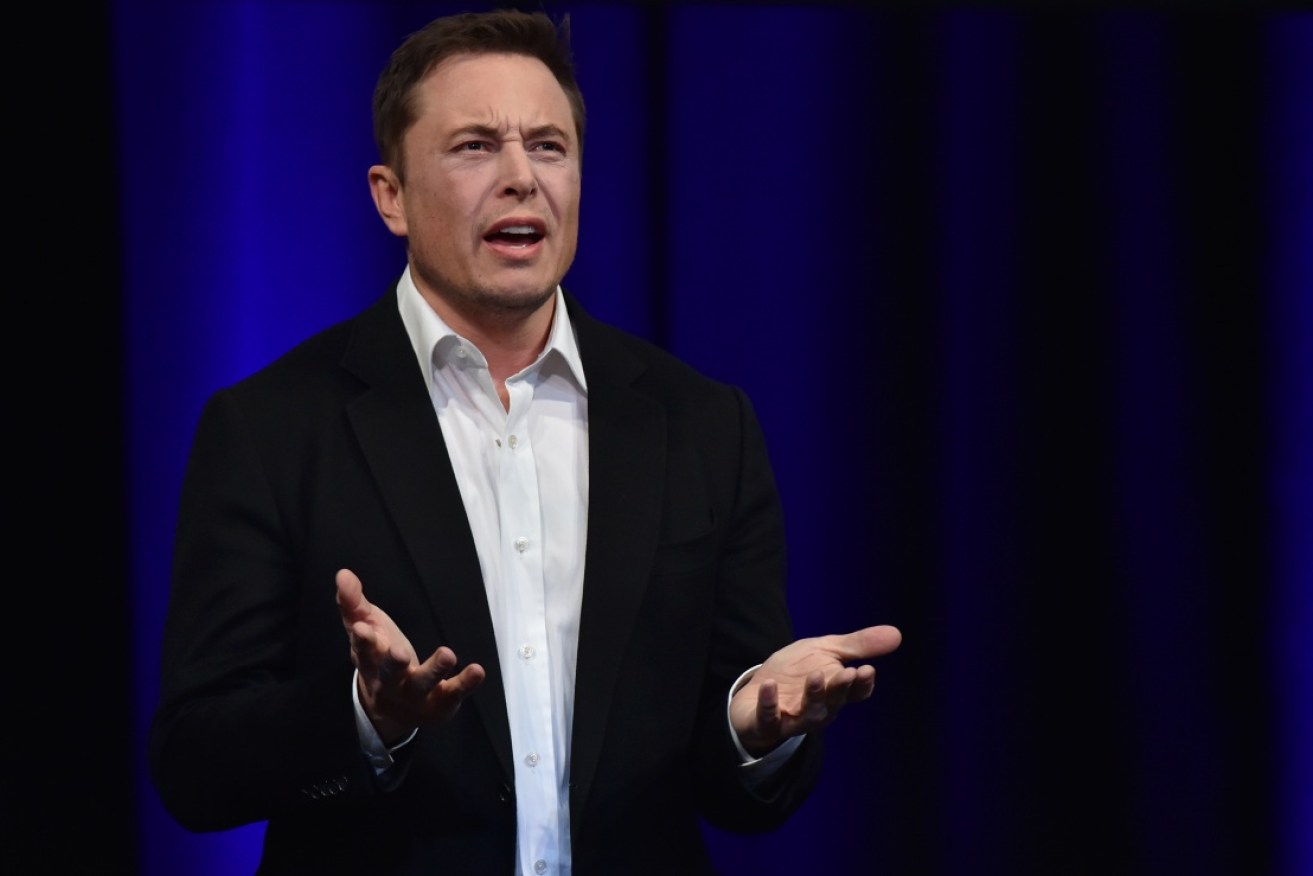Tesla stock tumbles after ‘bored’ Elon Musk’s bizarre bid to duck analysts’ questions


Tesla chief executive Elon Musk has been embroiled in a number of scandals in recent years. Photo: Getty
Wednesday dawned bright for Elon Musk’s electric car-maker Tesla. But by dusk the shine had come off, and the stock market was punishing the company.
On Wednesday, at 2.30pm California time, Tesla chief executive Mr Musk joined a conference call to talk with industry analysts about the company’s earning report, which had just been released.
This is standard practice for listed companies – the top brass make themselves available to analysts from big banks, investment firms and market-intelligence outfits such as S&P and Moody’s.
The idea is to keep the market informed on the day they release earnings.
Tesla had just released its earnings report for the January-to-March period, which recorded a broad acreage of red ink, but not quite as much as investors expected.
It showed a loss of $US784 million ($1.04 billion), the largest in the company’s history.
Mr Musk had taken to Twitter to make sure the surprise was well known.
La la lahttps://t.co/rLQfmrcNO2
— Elon Musk (@elonmusk) May 2, 2018
Before long, Mr Musk would be singing a different tune.
When the analyst call began, it seemed normal enough, featuring a spiel from Mr Musk.
He spoke about the company cutting third-party contractors – “We’re going to scrub the barnacles” … “we’ve got barnacles on barnacles” – and of improving battery production and refining automation.
Tesla also dealt with a robot designed to put a piece of fibreglass matting on top of the battery – “basically fluff,” as Mr Musk described it.
It continually failed. They called it “fluffer-bot”, and after a huge amount of effort trying to recalibrate the machine, finally decided to boot the bot.
“Machines are not good at picking up pieces of fluff, hands are way better at that,” he said.
Interestingly, they also got rid of the fluff, deciding it was unnecessary and making the hilarious story about excessive automation rather more pointed. All that effort might have been saved had the car’s design not been rushed.
After Mr Musk’s set-piece, questions began – and the rot set in.
Bored of boneheads
In its earnings report, Tesla announced its intention to reduce capital spending – implying it might be buying fewer production-line robots or building less Superchargers, its network of fast charging stations
Naturally enough, that was a source of interest. But as analyst Toni Sacconaghi began to ask for more detail on capital spending, he suddenly found himself being interrupted by the billionaire.
“NEXT! NEXT!” yelled Mr Musk. “Boring bonehead questions are not cool. Next.”
An analyst’s job is to ask detailed questions about company finances. They don’t do it for fun – they are paid for their insights (directly or indirectly) by the people who own the company: stockholders.
Most CEOs are patient and respectful, simply weaving around analyst questions they don’t wish to answer. Insulting analysts on a call is not without precedent, however.
Enron chief executive Jeffrey Skilling famously called an analyst an “asshole” just before the oil and carbon-credit trading company went bankrupt and Mr Skilling went to jail.
With the participants in the call reeling from what had just happened, the opportunity to ask the next question fell to a man named Joseph Spak.
Mr Spak began a touch nervously, asking in a roundabout way what share of people who had reserved a Model 3 in advance were actually buying them.
When his question stumbled to its conclusion, the response that followed was 14 seconds of silence. It seemed to stretch for eternity.
“Let’s go to YouTube,” said Mr Musk finally, indicating that one of the most peculiar moments in the history of analyst calls was about to get even stranger.
Wall Street Journal journalist Charley Grant took to Twitter to express his shock.
I can't believe what I just heard. This is an embarrassment to the capital markets. $TSLA
— Charley Grant (@CGrantWSJ) May 2, 2018
Instead of answering a question on the demand for Tesla’s lynchpin product, a young man who runs a YouTube channel full of videos that gush about Tesla was given an opportunity to ask 10 questions in a row.
The man, Galileo Russell, had collected the questions from other small-scale investors but none was about the Model 3. Several were about things that might happen far in the future, like a possible “robo-uber” comprised of self-driving Tesla cars.
“These are way more interesting!” exclaimed Mr Musk.
But as he and the YouTube star riffed for more than 20 minutes, the stock market was making its views known. Tesla stock was being sold off, and billions of dollars were wiped off the value of the company.

Tesla’s stock took a tumble on the NASDAQ on Thursday. Photo: Supplied
At the end of Friday trade (US time), the Tesla share price had settled around $US24.09 ($31.96).
The sense Tesla has something to hide might have provided some of the downward momentum, but coming on top of tales of Mr Musk firing people who deliver bad news, the call also provided a telling glimpse into his disposition.
The big question is whether the behaviour of Mr Musk – a renowned eccentric – is just the price you pay for having a genius CEO, or whether it is being exacerbated by deep problems at the company.
Speculation is rife that Tesla is running out of cash and could even go bankrupt. Its stock price has fallen around 20 per cent since late February.
That alone should be enough to make people interested in what Tesla does next.
But on the next analyst call, in three months time, the possibility of a financial meltdown will not be the only reason to tune in.
Jason Murphy is a Melbourne-based economist








